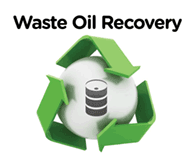The independent review, commissioned by Horticulture Australia, has found the organisation is dominated by industry groups.
Consultants, ACIL Allen, have recommended that growers head up a new body to take on the management of industry levy money. A consultant with ACIL Allen, Stephen Bartos, says the conflict of interest in horticulture in deciding how levies were spent was raised frequently as a problem during the consultation process. "The industry representative bodies are part of the decision-making process about money that then flows to those very same industry representative bodies. It may just be perceived, but in governance, a perception is just as important as a reality. If people don't have confidence in the system, then they worry about it. Certainly that perception of conflict of interest was raised by state governments, by researchers, by other industry bodies that are outside the HAL system, so it was widely perceived."
The report's key recommendation is the removal of the 32 industry advisory committees, which decide how grower levies and tax payer funds are spent.
Horticulture Australia Limited is currently owned by 43 peak industry bodies including vegetables, citrus, various nuts, apples and pears, avocados, berries, bananas, the nursery industry and turf.
ACIL Allen’s report says HAL must transition to a grower-owned corporation because it is dominated by the peak industry bodies and the planning and effort is skewed toward individual industries. The report says this will 'address conflict of interest and strengthen grower accountability and representation'.
In a startlingly frank assessment, the report says:
- The industry advisory committees are costly, unwieldy and conflicted
- External advice is essential
- The new HAL should aim to maximise the strategic contribution and minimise the conflicts of interest for the advisory function in creates and operates.
- The review calls for a rationalisation of strategic plans.
It says the plethora of plans 'skews effort and investment'. It says the new HAL should have one strategy about R&D and extension, while, separately, industries can develop their own.
Horticulture Australia responds
John Lloyd, the chief executive of HAL, rejects the review's assessment there is 'limited demonstration of industry benefits'. "I don't accept that. I do acknowledge that demonstrating in the language that particularly government like to use, which is total factor productivity, is difficult to do. But I would say, if it was wasted, why has horticulture grown to such a degree in the last fourteen years? We'd be the second or third biggest agriculture sector and with the fastest growth rate."
Lloyd acknowledges conflict of interest concern is legitimate. He says members of HAL, the peak industry bodies, own the organisation as the shareholders. "I'd call that control. That is our current constitution."
Asked if the Agriculture Minister, Barnaby Joyce, might find that compelling enough to abolish HAL and adopt these recommendations, Stephen Bartos of ACIL Allen says a number of industry bodies also want that. "We see the industry bodies are very important to horticulture, to get the message out, for extension, they develop their industries. So they should be allowed to get on with that without the perception of a conflict of interest."
Vegetable growers’ concerns
The review is said to vindicate concerns and complaints that had been brewing among some growers for many years.
The rumbling in the vegetable sector was exposed in some submissions to the ACIL Allen review, revealing concerns that Australia's research capacity had been destroyed.
The Sweet Potato Growers Association, the Herb and Spice industry, and Protected Croppers, plus Vegetable Growers of Victoria raised complaints in both public and private submissions to this inquiry.
Discontented growers believe AUSVEG, the peak industry body for vegetables, is to blame, a claim that's vehemently denied.
In its defence, AUSVEG says that Horticulture Australia Limited, through its expert committees, decides how money is allocated to research projects.
Source: abc.net.au



 Classifieds
Classifieds



